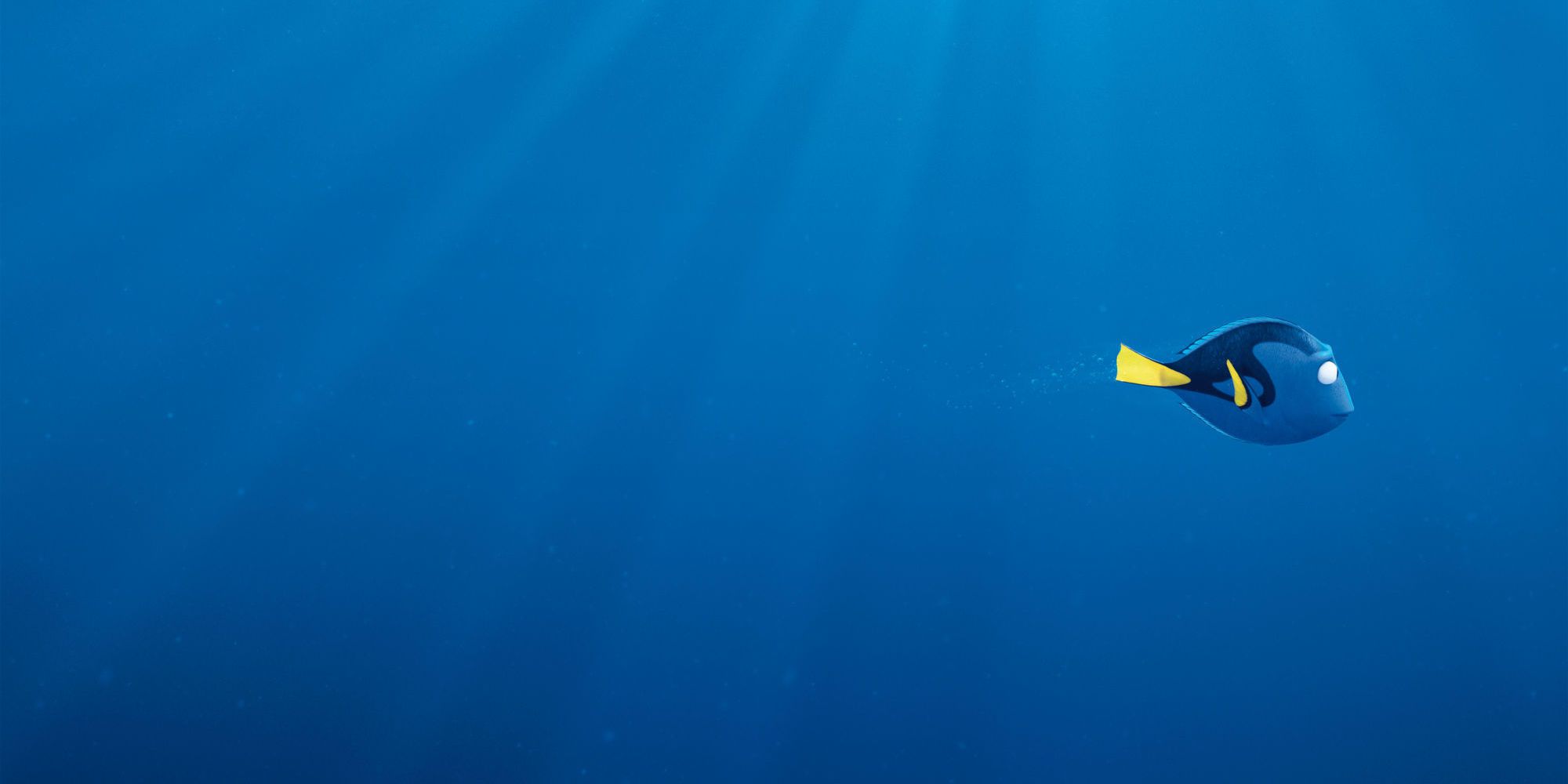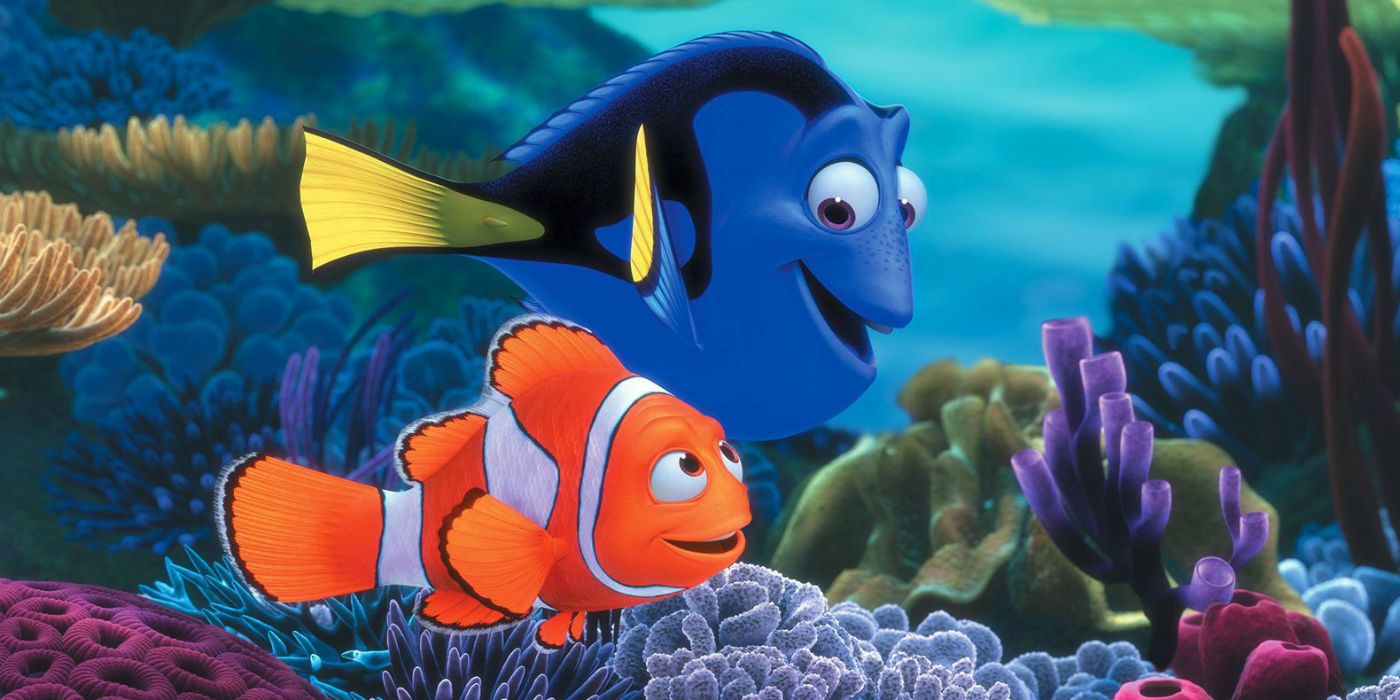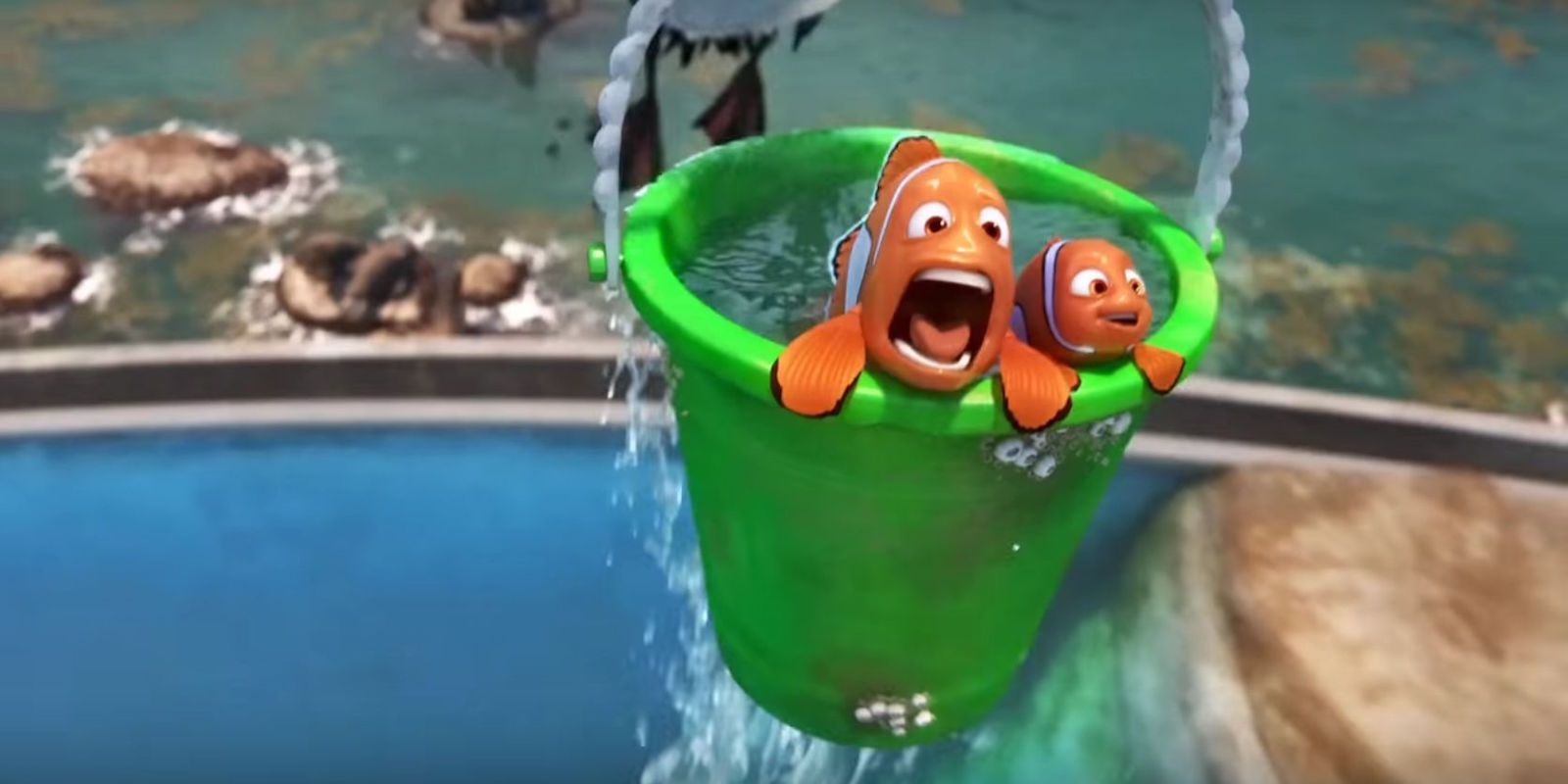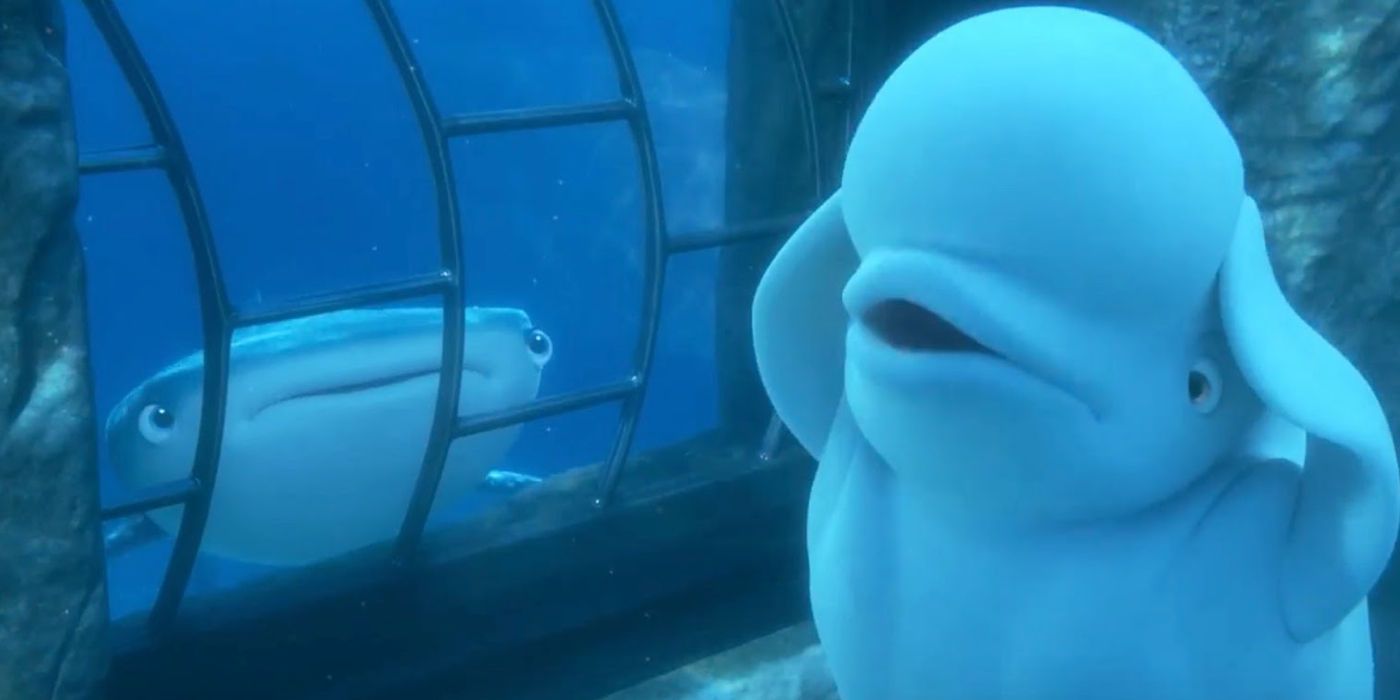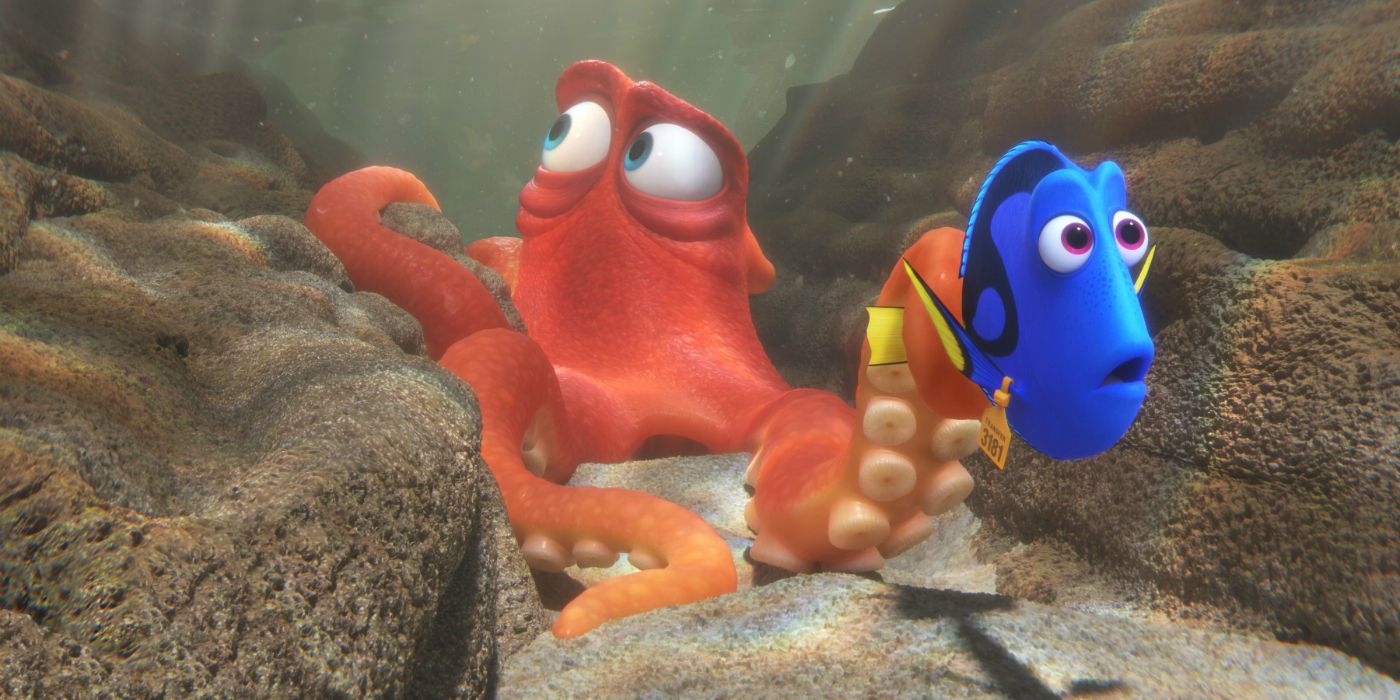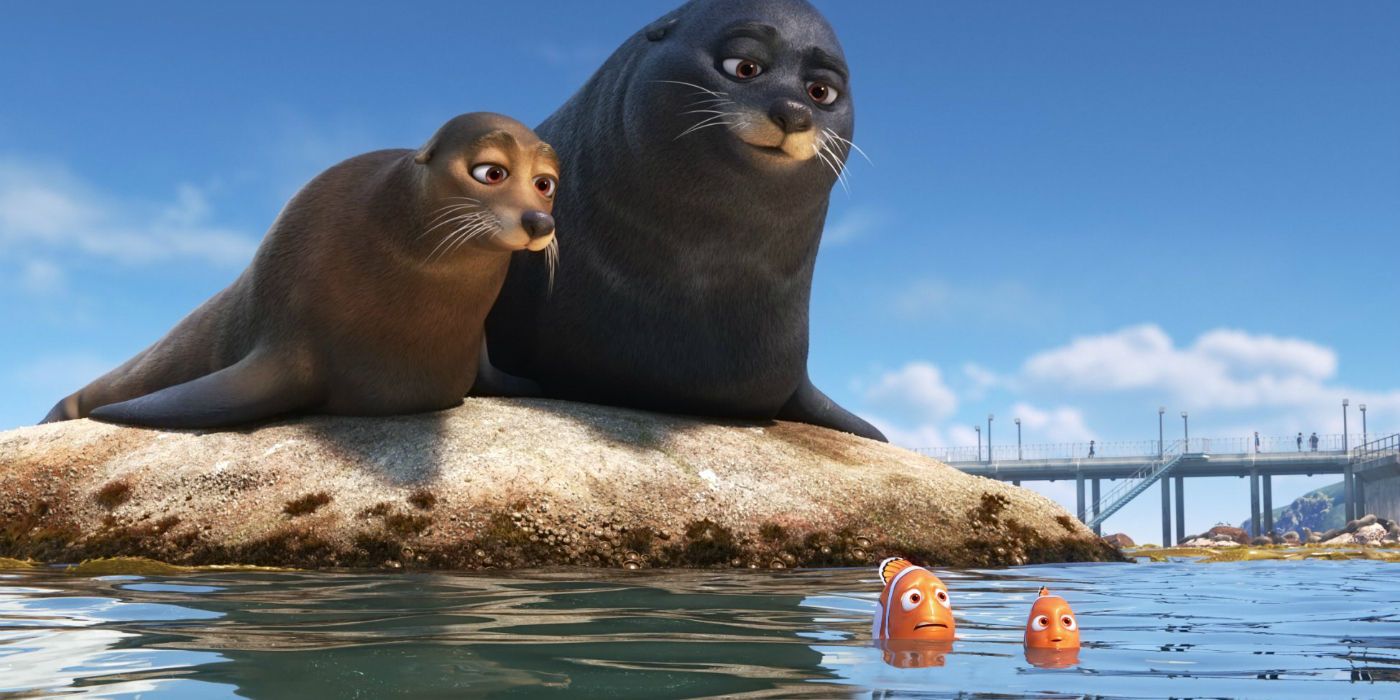Finding Dory isn't just a worthy sequel to Nemo, it also succeeds on its own - as a rousing tale of love and overcoming adversity.
After a happy reunion between Nemo (Hayden Rolence) and his father Marlin (Albert Brooks), the clown fish family settled back into the reef - joined by the friend they met during their globe-trotting adventure, Dory (Ellen DeGeneres), an absentminded blue tang. Embraced by Nemo and Marlin's reef community, following years lost and on her own, Dory finds happiness, support, and safety with her surrogate family - but when a field trip with Mr. Ray triggers a memory of Dory's birth parents, the amnesiac fish decides to set out in search of her family home.
Worried that Dory's memory disability will get her lost (or killed), Marlin agrees to accompany Dory, joined by Nemo, across the ocean once again. Hitching a ride with Crush, who is still surfing ocean currents with his turtle family, the adventurers arrive at "the jewel of Morro Bay, California" aka the Monterey Marine Life Institute. However, when Dory is separated from Marlin and Nemo outside the Institute, the forgetful fish is forced to overcome her fears and retrace fractured memories, with the help of an escaped octopus, Hank (Ed O'Neill) and farsighted whale shark, Destiny (Kaitlin Olson) - in order to find her way home.
13 years after the original, Finding Dory was brought to the big screen via a screenplay and direction from Andrew Stanton - helmer and co-writer of Finding Nemo. Considering that Finding Nemo remains one of Pixar Animation's most beloved standalone films, some fans were reluctant to hear that Disney intended to develop a sequel - especially after Cars 2 released to a mixed response from critics and moviegoers, alike. For a brief moment, it seemed as though Disney and Pixar might be more concerned with creating animation franchises than the quality standalone adventures viewers had come to expect - and pressure was on Stanton to prove skeptics wrong. Fortunately, Finding Dory isn't just a worthy sequel to Nemo, it also succeeds on its own - as a rousing tale of love and overcoming adversity.
In general, pacing and execution of the Finding Dory story isn't quite as smooth this second time - given that the film relies on a mix of present tense action that triggers moments of clarity (read: flashbacks) in Dory's jumbled memories. The setup serves the thematic journey that Dory, and her supporting characters, are charting but Stanton never fully establishes the Monterey Marine Life Institute, or its inhabitants, with the same care or definition as Phillip Sherman's dental practice, in the original film, for instance. Still, the time-hopping narrative structure doesn't make the movie any less entertaining and, on the contrary, sets the stage for an even more profound emotional punch than its predecessor.
Stanton spends a lot of time retrofitting Dory's quirky personality with direct correlations to interactions and experiences from her past - which, while fleshing out the character, steals away some of the idiosyncrasy that made Dory so refreshing in Finding Nemo. It's still amusing to see Dory speak "whale" but knowing why Dory can speak whale doesn't make the joke any funnier. Nevertheless, even if the movie doesn't leave much room for further examination of Dory's mysterious past in future Nemo series installments - Finding Dory is a smart expansion of the featured character, if only for the film at hand.
Rather than simply repackaging a similar plot, theme, and cast of characters into a safe follow-up, Finding Dory takes some intriguing risks - managing to find new perspectives within its established water-filled world. Stanton indulges in several callbacks (note: stay through the credits) but evolves the series' focus from a relatively straightforward, but still imaginative, exploration of trust and family - into an outright inspiring tale of overcoming personal challenge (where physical or mental disabilities do not define or confine a person). Like many Pixar films before it, Finding Dory is an earnest and often hilarious exploration of our human condition through the eyes of a fantasy character - one that resonates at different levels throughout (ensuring the film includes ample laughs and take-away messages for every viewer, regardless of age).
In addition to Nemo and Marlin, who are each given another round of development in Finding Dory, the film introduces viewers to a fresh batch of friendly sea creatures. Some cast members are tasked with making audiences laugh while moving the plot forward (such as Idris Elba and Dominic West's sea-lion friends, Fluke and Rudder, respectively) but others play a much more pivotal role - and juxtapose key aspects of Dory (and her own insecurities), including Kaitlin Olson as a low-vision whale shark, Destiny, and Ty Burrell as a beluga whale, Bailey, who cannot echolocate. In particular, Ed O'Neill's cranky octopus, Hank, is a standout - and responsible for several of Finding Dory's most touching and laugh-out-loud scenes.
By populating the Finding Dory world with new characters that are all in need of rehabilitation (whether physically, mentally, or emotionally), Stanton lays a rich foundation for personal reflection and the filmmaker does not shy away from confronting viewers with tough situations. Watching Dory struggle to find her way through the world can be gut-wrenching at times but Stanton's respectful commitment to depicting the challenges of her condition make the overarching experience (and outcome) all the more profound. That is to say: by digging into Dory's isolation, confusion, and terror, it's even more impactful to see the lovable character (and her friends) grow and succeed.
Finding Dory is also playing in 3D theaters and, like most Pixar films, including the Finding Nemo 3D re-release, Stanton's latest is worth a premium ticket. High-caliber animation usually benefits from a 3D viewing but Finding Dory's underwater locales, bright environments, and colorful characters are perfectly suited for 3D viewing - taking full advantage of any added immersion. Viewers who only intend to catch Finding Dory as a matinee show might not need an upgraded ticket but 3D is recommended to anyone willing to spend a bit more.
Stanton packs Finding Dory with beautiful CG animation, thrills, laughs, and heartfelt moments. The filmmaker delivers everything viewers would want in a Pixar film - much less a sequel to one of the studio's most acclaimed projects. It would have been easy for Disney to cash-in with Finding Nemo 2 but, afforded 13 years to think about his return to Nemo's underwater world, Stanton crafted a delightful story, and powerful message, that stands shoulder to shoulder with Pixar's best.
TRAILER
Finding Dory runs 97 minutes and is Rated PG for mild thematic elements. Now playing in regular and 3D theaters.
Let us know what you thought of the film in the comment section below.

